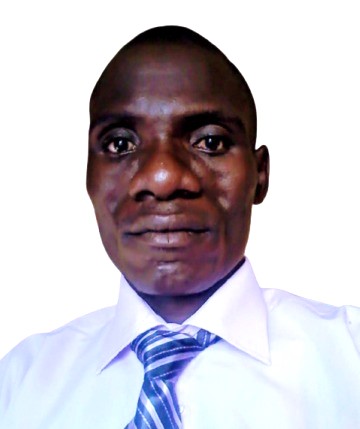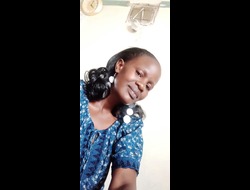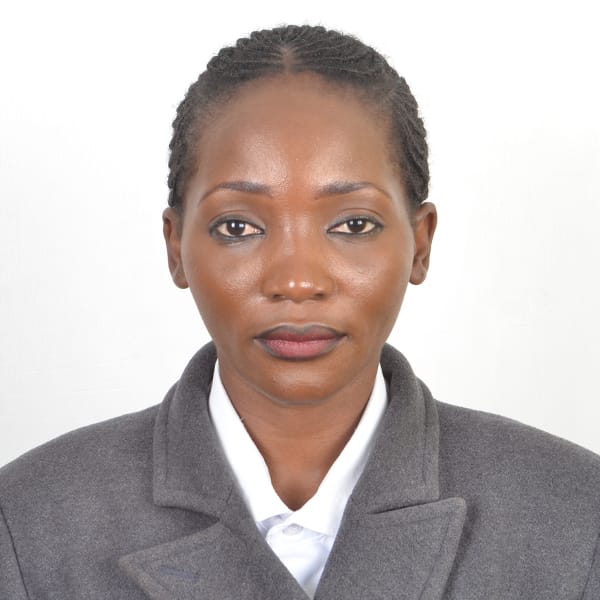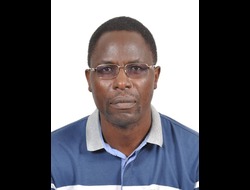LIFEGUARD KENYA PROGRAMS AND ACTIVITIES
-
LIFEGUARD KENYA PROGRAMS AND ACTIVITIES
In implementing its objective, Lifeguard Kenya implements programs to address various issues within the community. The key programmes are child protection; gender based violence; women empowerment and paralegal services.
-
Child Protection and Safeguarding
Lifeguard Kenya recognizes that violence against children remains a critical concern for all girls and boys (especially the most vulnerable) especially in areas where the organization works. Children who experience violence are often left with long-lasting negative social, emotional, mental, physical and spiritual consequences. Under the Child Protection Programme, Lifeguard Kenya implements the following interventions/ activities:
- Mentorship and community empowerment
The intervention targets to sensitize communities and raise awareness on children’s rights and protection; as well as mobilizing community-level activity to realize children’s rights and protection. Lifeguard Kenya establishes capacity and awareness activities targeting children, their families and local communities to identify risks, and prevent and respond to protection concerns. At the same time, Lifeguard Kenya works with the national and local government and non-governmental actors to strengthen the capacities of formal child protection services and ensuring linkages between the formal and informal, community-based services.
- Rescue and integration
Lifeguard Kenya initiated a rescue and integration activities under the child protection program. The intervention targeted vulnerable children neglected by families; street children; and the orphaned vulnerable children (OVC). The organization has engaged various stakeholders in formation of human rights defenders and lobbying for the initiation of safe houses for rescued children. Further children in the informal settlements are subjected to child labour including domestic work that prevents them from attending schools and accessing other basic needs. Lifeguard Kenya also rescues these children and facilitates them to acquire education through sponsorship and family support.
The intervention also addresses Home tracing, Reintegration and reunification of children with their families after doing community dialogues through participatory education theatre on Family Group Decision Making. The FGDM members include the family group of the child, community representative, welfare worker, caseworker, counselor and DCO staffs. Through this initiative, Lifeguard Kenya ensures children are reintegrated back to their communities and families safely. For instance, in the past 3 years the initiative targeted four statutory Children institutions (SCIs) run by the Department of children services (DCS) in Nairobi County, they entailed Nairobi Children remand home; Dagoretti Girls Rehabilitation; Kabete boys Rehabilitation; and Nairobi Res cue Center. These also entail provision of psychosocial support to children in the justice system
- Online child sexual exploitation and abuse
Children living in urban areas are confronted with the risk and reality of online child sexual exploitation and abuse (OCSEA). This has been worsened by the low level awareness and capacity to address the issue with victims receiving little support, and few offenders are brought to justice. Lifeguard Kenya under the child protection program has initiated OCSEA activities in collaboration with government and public institutions; frontline workers and caregivers to disrupt the harm it is causing to children. Lifeguard engaged in creating awareness on the topic of online child sexual exploitation and abuse – including the role of technology – through effective, widespread community forums and IEC materials. The organization also provides capacity to caregivers to talk to children about their lives online, and challenge taboos that prevent children and adults from talking about sex or from seeking help. The intervention also works with other school programs to train and inform children of the safe ways they can use to disclose difficult experiences and obtain support outside of their family or community members.
- Children life challenge clubs
Working with schools in the area of operation, Lifeguard Kenya has established Children Life Challenge Clubs in selected schools in the area. Currently the organization has initiated the initiative in 10 schools whose aim is to educate children on life skills; create a platform for children to discuss issues affecting them; educate children on their rights and safeguarding; create an avenue for identifying risks and challenges faced by children; and equipping children with the skills and knowledge to address issues affected them within the community.
Children and youth engaged during the 116 Child help line campaign
- After care programmes, Guiding and counseling
Lifeguard also provides after care programme, guiding and counseling services to affected children, their families and caregivers. This came about due to limited availability of Government social workers in the areas. The follow-up on cases are normally led by Lifeguard Kenya, where possible (i.e. where local social workers were in place) in coordination with the local Social Welfare office. For low and medium risk cases, the Lifeguard Kenya members who identified the cases are responsible for follow-up. These imply accompanying the child and his or her caregivers to the community structures or service providers, and discuss and inform next steps with the child and caregivers. The activity also ensures that counseling sessions are done in a child friendly settings that sets up a supportive and non-judgmental environment where the beneficiary can freely air their issues, where their dignity, opinions are respected or seen to be respected and their confidentiality is protected.
Lifeguard team training school going children on child protection and safeguarding issues- their rights, opportunities and abilities.
-
Gender Based Violence
Gender-based violence (GBV) is one of the most severe forms of gender inequality and discrimination in Lifeguard Kenya area of operation. GBV remains one of the most pervasive human rights violations of modern time. It is an issue that affects women and young girls disproportionately, as it is directly connected with the unequal distribution of power between women and men; thus, it has a profound effect on families, communities, and societies as a whole. In Kenya, about 34 per cent of women have experienced physical violence since age 15 and 13 per cent of women have experienced sexual violence at some point in their lives (KNBS, 2022). To address these cases of GBV, Lifeguard Kenya engages in the following interventions and activities:
- Family Mentoring Family
Lifeguard Kenya has established Family Mentoring Family initiative. The initiative addresses the roots of GBV by engaging families, community members, and men in discussions about harmful cultural norms, such as child marriage and wife inheritance. Further the initiative supports the formation of Family Group decision making for households affected by gender based violence. The family members and the community stakeholders are invited to come up with family ingrained solutions to the roots cause of the gender violence, guided by the Lifeguard Kenya counselors and social workers while laying strong emphasis on the participation of the family members and the children, in carrying out in-depth assessment of the child/ family needs.
- Mediation, Mentorship and counseling
Victims of GBV are provided with mentorship and counseling services by Lifeguard Kenya counselors. Further the counselors also provide mediation in order to foster reconciliation among partners engaged in the violence. Lifeguard Kenya adapts a client centered approach where both non directive and eclectic counseling technique are deployed to help the beneficiary craft their own solutions and develop coping capacity that are sustainable.
Community engagement forum on matters affecting the community especially on child protection and child rights especially to education and other basic needs
-
Women Empowerment Program
Unpaid care and domestic work affects a lot of women within the Life Guard Kenya operations area. This work include: cleaning the home; cooking; washing and dressing children; looking after sick or disabled family members; and collecting fuel or water. When women lose their time to unpaid care work, they lack crucial time to increase sustainable productivity and better access markets; to know how to claim their rights, to participate in decision making and to rest. When women spend less time on unpaid care work, they have more time for paid work, farming, making improvements to their home or farm, socializing, participating in their community, advocating for their rights, taking a part in family and community decision-making, and resting. Further women in the area are vulnerable to gender based violence and sexual abuse. In this regard Lifeguard Kenya has been implementing women empowerment initiatives to improve their livelihoods and economic status.
This includes:
- Voluntary Savings and Loaning Schemes
Lifeguard Kenya support women to form groups and train on table banking and financial literacy to improve their finances and economic wellbeing. The trained beneficiaries are also linked with the Bank to access financial services. These savings go a long way to help them establish income generating activities and improve their economic situation and livelihoods.
- Entrepreneurship skills
The organization provides training opportunities to selected women in tailoring and computer services. They are also engaged in training on entrepreneurship and business management. This has enabled the women in the area to be empowered economically and able to improve their livelihoods and support their families.
Lifeguard Kenya beneficiaries and teal receive certificate awards after completion of training sessions.
Tailoring sewing machines received by Lifeguard Kenya for the women empowerment training.
-
Community Paralegal Program
Lifeguard Kenya has over three years’ of experience in handling paralegal and mediation cases within Juvenile and Criminal Justice sectors through successful implementation of several interventions:
- Community paralegals services
Life guard Kenya offers community paralegal services. The organization uses several strategies to advance justice. These include: public education to increase awareness of the law; advising clients on legal process, and options for pursuing remedies; assisting clients to navigate authorities and institutions; mediating disputes; organizing collective action; and fact-finding, investigations, and monitoring. The services are provided to any community members in need but specifically targets abused/ violated children and women.
- Alternative justice system
Life guard Kenya employs informal justice systems, such as customary and traditional dispute resolution mechanisms, that are often more accessible and affordable than formal justice systems within the area of operation. The organization where necessary engages State-sanctioned institutions such as chiefs, the police, probation officers, child welfare officers, village elders under the County government, and the chair of Nyumba Kumi groupings, among others in addressing disputes within the community.
- Advocacy on child matters
Legal advocacy is also conducted within the paralegal program. Lifeskills addresses legal matters especially on children custody and maintenance. Advocacy activities are carried out through advocacy forums targeting the community. The advocacy agenda are also shared through community sensitization activities, children life challenge forums, family groups among other platforms. This has enabled addressing custody and maintenance challenges facing affected children in the area of operation.
Lifeguard Kenya representatives engaging local administration and leaders on addressing community issues affecting children and women in Embakasi central area
-
Cross-cutting activities
Overall the organization engages in various cross-cutting activities in addressing the three main programs: child protection; gender based violence and paralegal program. These entails:
- Sensitizing care givers and service providers on their role in child neglect and abuse prevention.
- Deepening public awareness on the rights and welfare of children and scaling up behaviour change campaign to adopt understanding of safeguarding.
- Hosting cultural events to highlight the place of culture in child rights and welfare.
- Convening cultural events with safeguarding messaging to influence behaviour change.
- Conducting positive parenting sessions.
- Adoption of rescue and referral mechanisms.
our mission
The lead organization providing structured innovative child centered safeguarding solutions, care giver engagement, cultural competence, training, rescue and rehabilitation services.
OUR VISION
Every child thriving in safe and secure society.
Help & support
Support us and change the course of a child's life today. You can send your donations using the following details
Lipa na Mpesa Paybill
BUSINESS NUMBER: 328585
ACCOUNT NUMBER: 1012580343
OR
Bank account No: 1012580343.
Faulu Bank DTM Kayole.
our programs
Child Protection
Family mentoring family
Counseling



